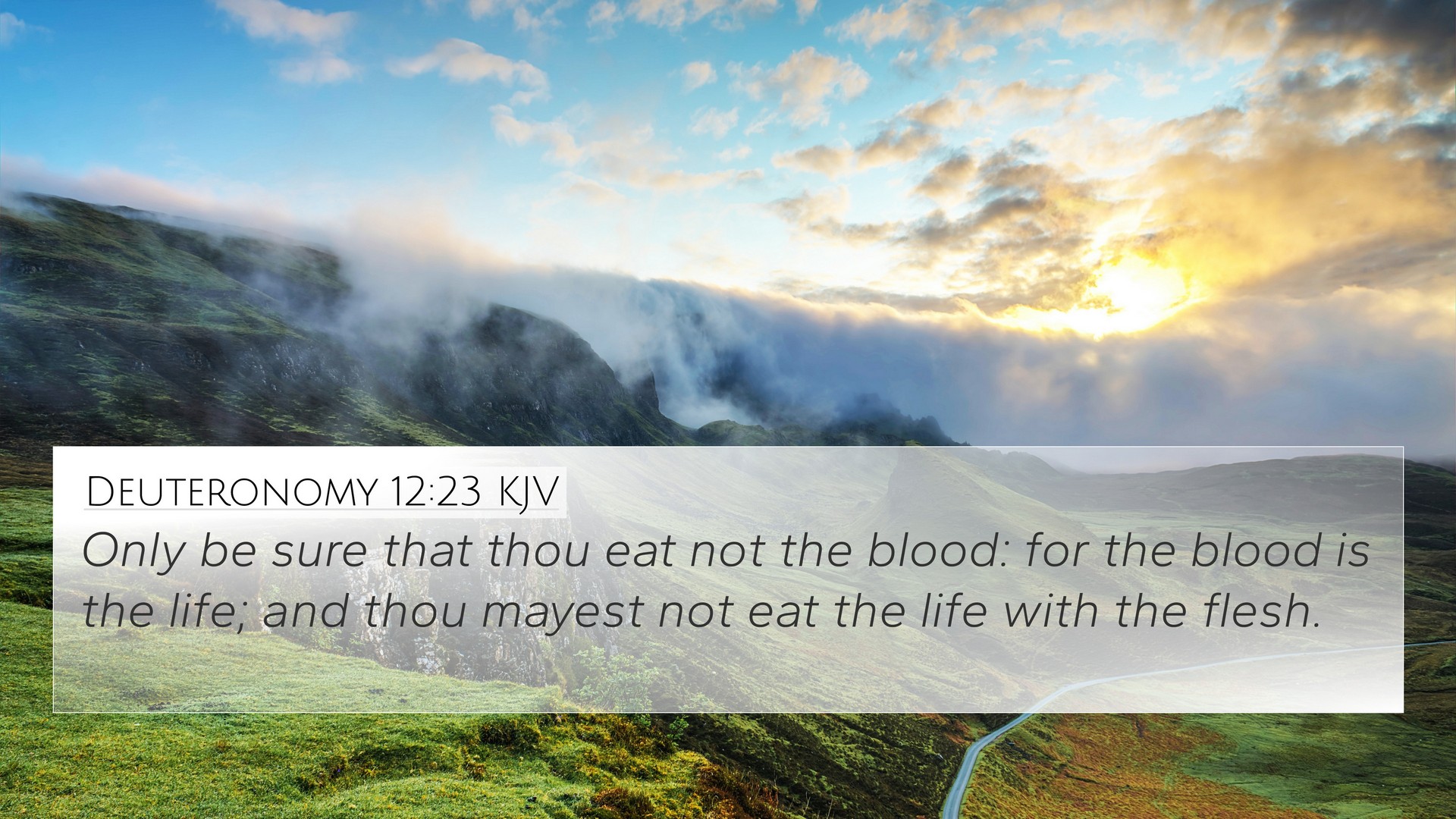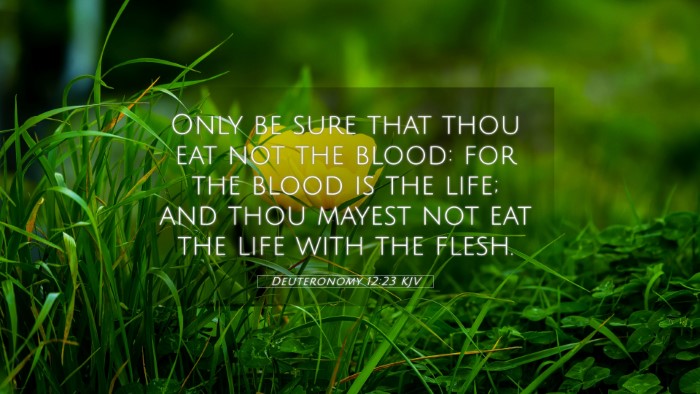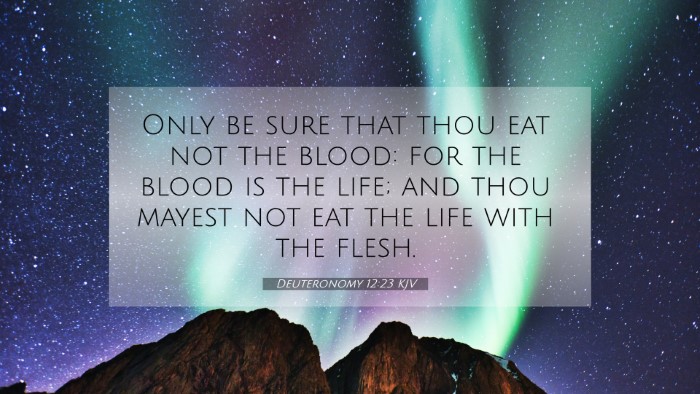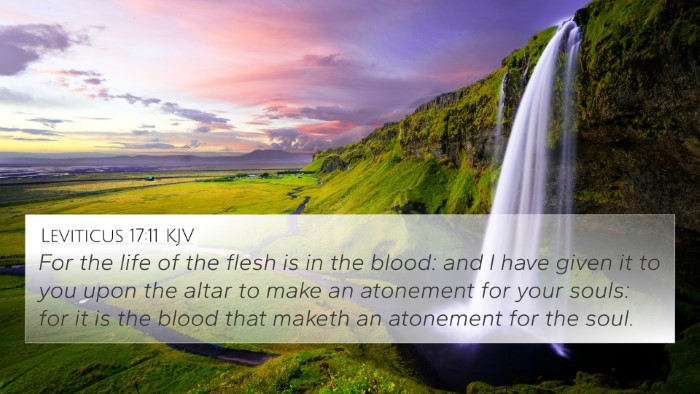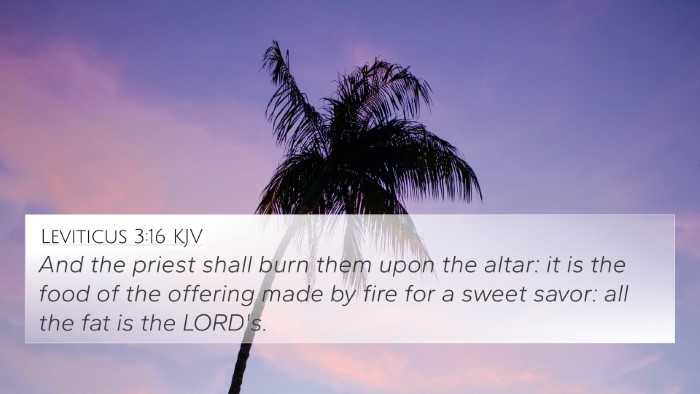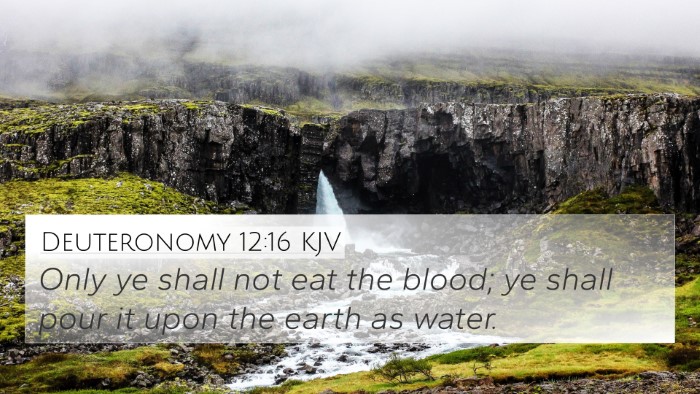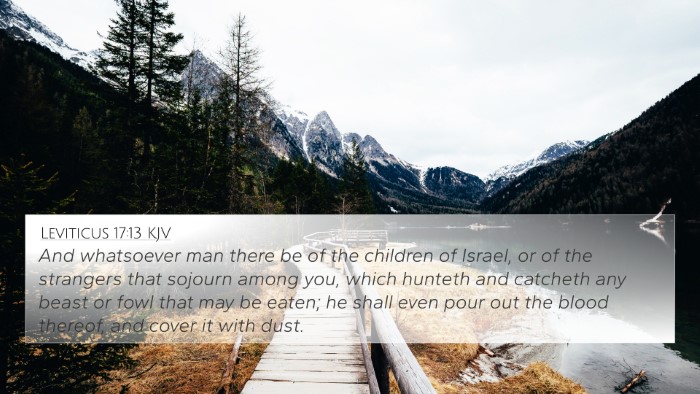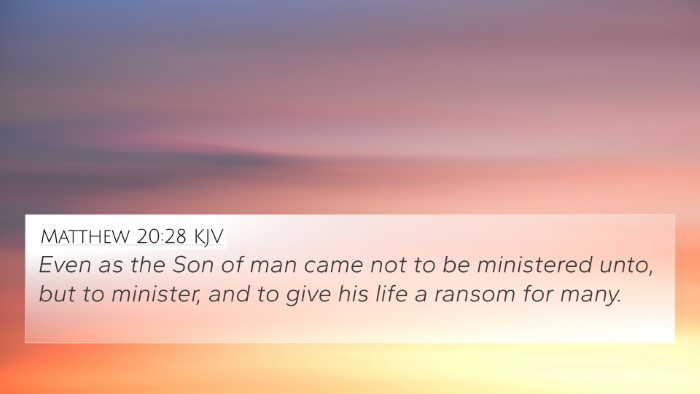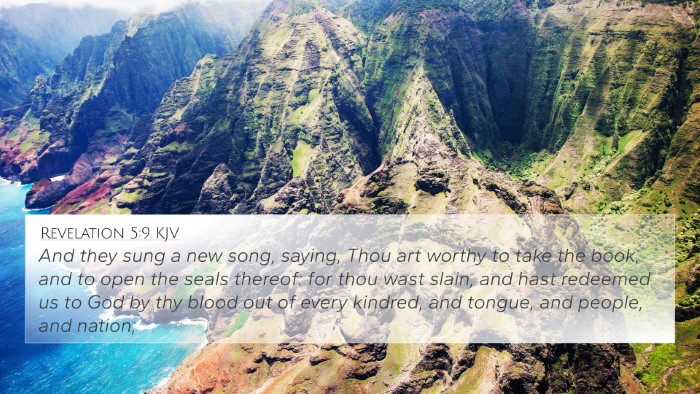Understanding Deuteronomy 12:23
The verse Deuteronomy 12:23 states: "Only be sure that thou eat not the blood: for the blood is the life; and thou mayest not eat the life with the flesh." This scripture addresses the sanctity of blood and its significance in the context of Israelite ritual and dietary laws.
Summarized Meaning and Commentary Insights
This verse carries profound theological implications regarding life, death, and covenant relationships between God and His people. The blood represents life itself, which is to be respected and treated with utmost seriousness. Matthew Henry, Albert Barnes, and Adam Clarke elucidate these ideas as follows:
-
Matthew Henry:
Henry emphasizes the vital principle of preservation found within the laws pertaining to blood. He notes that consuming blood is strictly forbidden, as it symbolically represents the soul or life of the creature.
-
Albert Barnes:
Barnes explains that the prohibition against eating blood is grounded in a reverence for life. God's people are to recognize blood as sacred, representing the life-enhancing relationship with God and fundamentally linked to atonement and sacrifice.
-
Adam Clarke:
Clarke elaborates on the connection between blood and atonement in the sacrificial system. He argues that the life which belongs to God should not be treated casually or consumed, as this would signify disrespect for God's sovereignty over life and death.
Bible Verse Cross-References
Understanding Deuteronomy 12:23 benefits from cross-referencing connected scriptures that explore similar themes of life, sacrifice, and respect for God's laws. Here are several relevant verses:
- Leviticus 17:10-14: This passage provides detailed instructions on the prohibition of blood consumption and emphasizes its role as an offering to God.
- Genesis 9:4: God commands Noah not to eat blood, reinforcing the message of respect for life even post-flood.
- Leviticus 16:15-16: This section discusses the imagery of blood in atonement rituals, highlighting its importance in divinely ordained sacrifices.
- Hebrews 9:22: New Testament reference affirming the principle that without the shedding of blood there is no remission of sins, linking the Old Testament sacrificial system to the New Covenant.
- Acts 15:29: The Apostolic decree prohibiting blood consumption among believers shows continuity in the respect for God's teaching regarding blood.
- 1 Peter 1:18-19: This passage refers to the preciousness of Christ’s redeeming blood, establishing a connection to the sacredness of blood in both Old and New Testaments.
- John 6:53-56: This controversial teaching of Jesus about eating His flesh and drinking His blood highlights the transformative meaning of blood in the New Covenant context.
Thematic Bible Verse Connections
Deuteronomy 12:23, seen in the light of other scriptures, encourages believers to understand blood's symbolism as life and spiritual truth. The thematic connection between the Old and New Testaments illustrates a continuity of divine instruction:
- Life and Atonement: Blood symbolizes life, and understanding its sanctity is crucial for both Israelite rituals and New Testament theology regarding sacrifice.
- The Covenant Relationship: Respect for blood reflects the covenant that binds the people to God, as seen in the blood of Christ establishing the New Covenant.
- Holiness and Sacrifice: The requirement of holiness in consuming food parallels the call for a holy life in Christ followers, emphasizing God's standards in both covenants.
Conclusion
Deuteronomy 12:23 serves as a pivotal verse in understanding the importance of blood within the biblical narrative. It invites deeper contemplation of the connections between sacrificial practices, covenant faithfulness, and the sanctity of life. By employing tools for Bible cross-referencing, believers can uncover rich theological truths that emerge from interconnected verses, enhancing their comprehension and appreciation of scripture.
